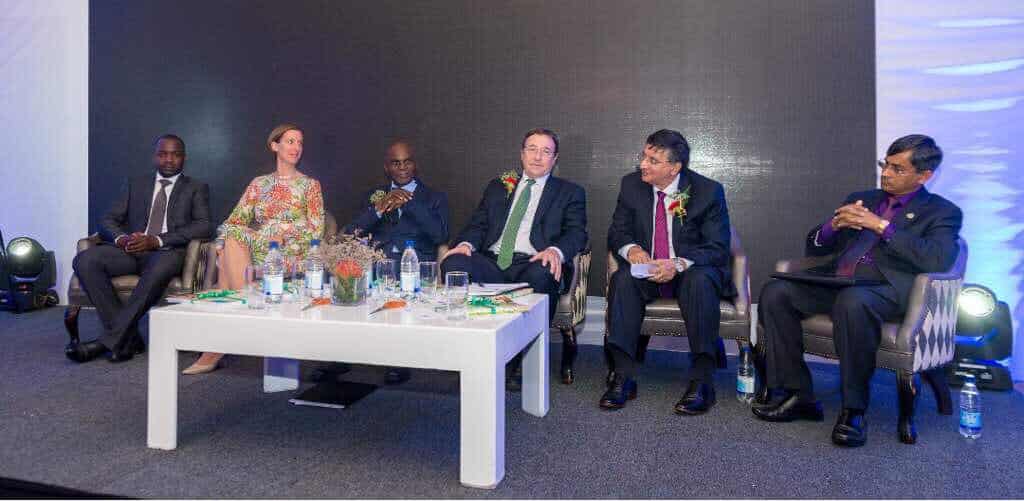By Byron Mutingwende
Building a climate resilient nation is among the country’s aspirations and the focus of the 2017 Zimbabwe Human Development Report (ZHDR) on this theme resonates with this trajectory.
In her remarks at the launch of the report at Meikles Hotel on 16 March 2018, Oppah Muchinguri-Kashiri, the minister of environment, water and climate, said Zimbabwe has made great strides towards building a climate resilient nation.
The launch of 2017 ZDHR was made possible through the support of the Swedish Embassy in Zimbabwe in partnership with the Government of Zimbabwe and the United Nations Development Programme. The report uses the “Drivers, Pressures, State, Impact, Response’ framework to analyse the interactions between climate and human development.
Zimbabwe has ratified a number of international related agreements. It is party to the United Nations Framework Convention on Climate Change (UNFCCC). The convention advocates for reduced emissions toward lowering global temperatures and offers guidance on coping with impacts of climate change.
The nation is also party to the Ramsar Convention on Wetlands that targets the preservation of internationally important wetlands. It also contains a resolution covering climate change impacts, adaptation and mitigation. The Convention on Biological Diversity, on the other hand, resulted in numerous decisions and technical papers describing the links between biodiversity and mitigation of climate change effects.
Zimbabwe’s nationally determined contributions (NDCs) focus on reducing greenhouse gas emissions in the energy sector, with agriculture also providing an opportunity for both climate change adaptation and mitigation.
“My ministry in collaboration with the ministry of lands, agriculture and rural resettlement has produced a climate smart agriculture manual for professional level education in Zimbabwe. The manual will be adopted in the training curriculum for agricultural extension officers to ensure they integrate climate change in the discharge of their duties,” Muchinguri said.
In the energy sector the scope of the NDCs is looking at expanding and promoting the use of renewable, cleaner energy technologies and enhancing energy efficiency. Renewable energies such as hydropower, solar, wind, biogas and other related environmentally sound projects provide an opportunity for emission reduction in the country although funds are limiting the promotion of these renewable energies.
“Government remains committed to the achievements of these NCDs and in demonstrating the seriousness, government attaches “towards building a climate resilient nation” as suggested by this theme, government put together a national steering committee which is housed in the Office of the President and Cabinet,” the minister added.
The United Nations Development Programme (UNDP) Administrator, Achim Steiner said the investing in resilience building was critical in mitigating the impact of climate change on the vulnerable population.
Bishow Parajuli, the UNDP Resident Representative for Zimbabwe weighed in and said climate change could have adverse impacts on the lives and wellbeing of citizens and could constrain or even reverse the progress that the country has made in social and human development.
“Zimbabwe is a high climate risk country because of high vulnerability of climate changes on its population and exposure to climate-related events such as frequent droughts, and reliance on agricultural land. The impacts of climate change and variability are becoming more evident with increased incidents of droughts, floods and hailstorms, as well as more hot days and heat waves,” Parajuli said.
Justin Mupamhanga, the Director of Monitoring, Implementation and Evaluation in the Office of the President and Cabinet said the government places great importance on issues to do with sustainable development and welfare as well as poverty eradication.
Zimbabwe is part of the global efforts towards improvement of human life through improved access to basic and higher education, health and incomes. These are buttressed by initiatives such as the Sustainable Development Goals (2016 to 2030), which have since been by the country and the Africa Agenda 2063. The UN has been tracking progress in improving the quality of the world’s citizens through regular production of Human Development Reports.
These reports assist policymakers to take stock of the impact of government initiatives and efforts in addressing challenges brought about by weak economic growth and the resultant poverty.
“These reports bring to the fore, well-researched policy scenarios to mitigate and adapt to climate change that minimise its impact on the people and their property. It is also relevant, because we have just articulated a new economic order through the 2018 Budget and we have embarked on designing a new development strategy that aims to realise Zimbabwe’s own development aspirations in the country’s journey to achieving not only sustainable development goals but to become a middle income economy by 2030,” Mupamhanga said.
